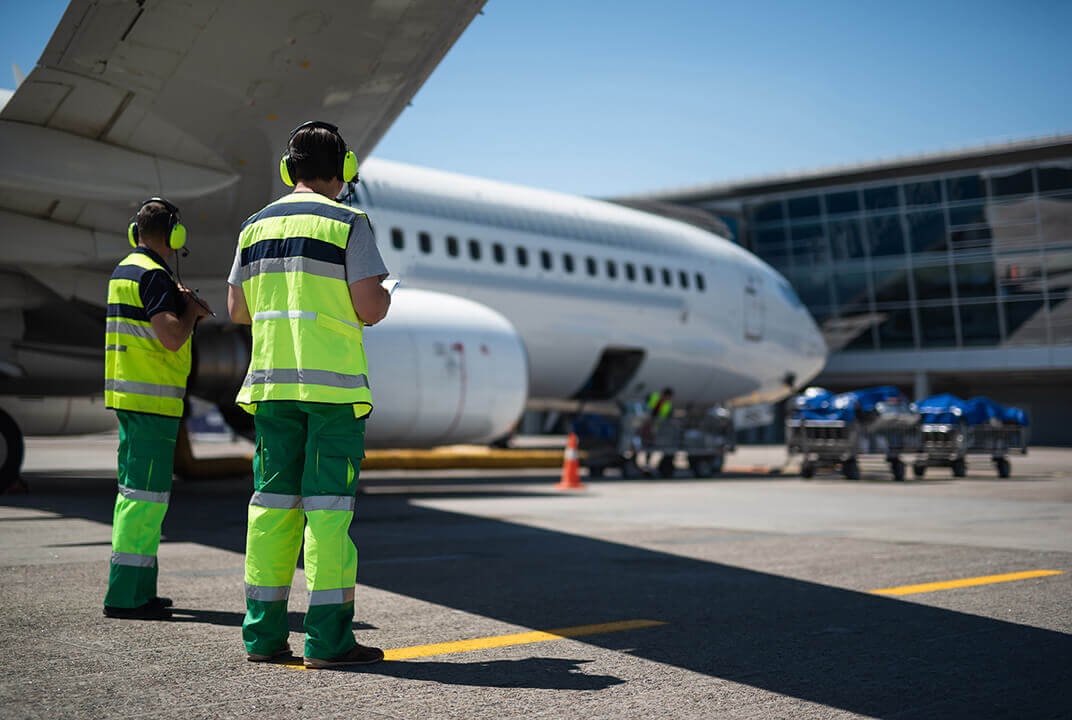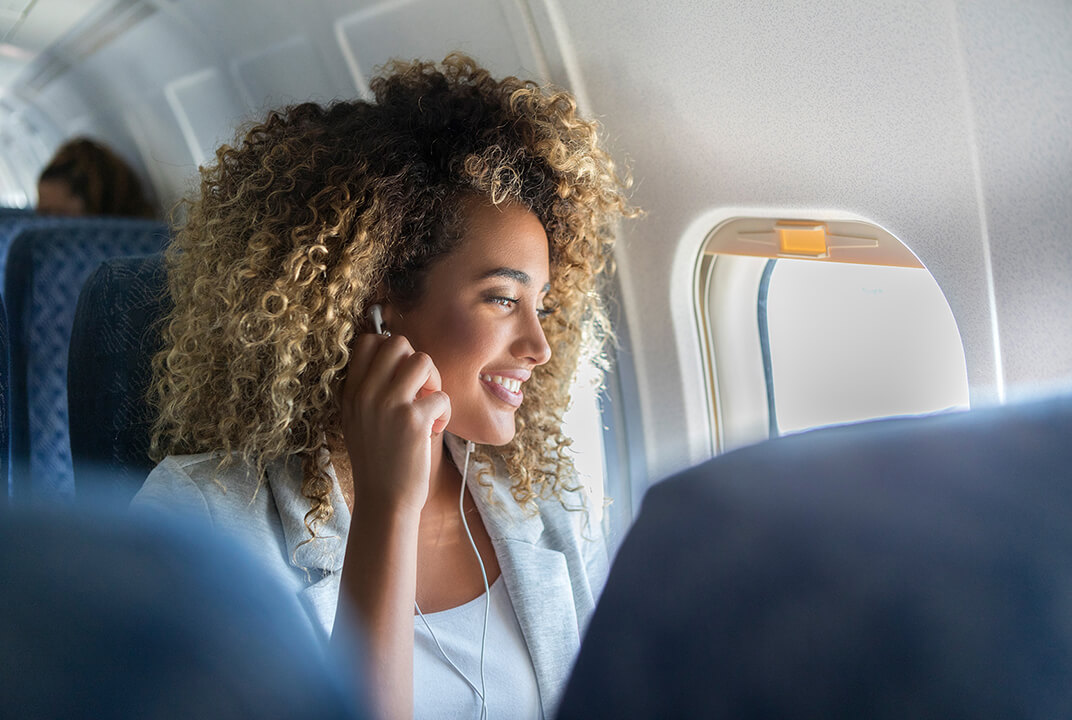Insight | Increased digitalisation critical to rebuilding passenger confidence
Increased digitalisation critical to rebuilding passenger confidence
Aviation
That’s according to our comprehensive Passenger Confidence Tracker, a survey that reflects the views and attitudes of flyers from across the globe.
For those working in aviation you might be forgiven for thinking that words – and concepts – like positivity, opportunities and recovery, are thin on the ground right now. More than perhaps any other industry, the decimating effects of the COVID-19 pandemic have hit aviation hard.
However, while the industry remains in a perilous position, reasons for constructive optimism are not as scarce as one might assume. And acting as a catalyst for these encouraging visions of the future is the enhanced role of digital technology – particularly connected technologies – in empowering and reassuring passengers that air travel is safe.
That’s certainly one of the key take-outs of our 2020 Passenger Confidence Tracker, a new global airline passenger survey that seeks to understand passenger attitudes to travel and flying in the wake of the coronavirus pandemic.
Conducted in October 2020, in the aftermath of a difficult peak travel season, market research company Yonder spoke to 9,500 people across 12 countries worldwide, all of whom had taken at least one flight in the previous 18 months. The questions posed were an attempt to absorb and recognise levels of passenger confidence at different stages of their journey and their thoughts on the industry’s response to the pandemic.
Commenting on the premise of the report (which you can download here), Inmarsat Aviation President Philip Balaam says understanding passenger confidence is fundamental to the industry’s recovery as it can shape and pinpoint how the industry can respond.
“It’s crucial for us to have a deep understanding of today’s passengers and what makes them tick, to help our airline customers stay one step ahead of the curve when it comes to passenger experience,” he points out. “We felt it important to uncover the true impact of the virus on passenger habits, arming the industry with the knowledge to adapt to changing customer needs and, eventually, come back stronger.”
Download the report
COVID-19 has changed everything
Perhaps unsurprisingly, it’s clear that the events of 2020 have altered the dynamics of the aviation industry. In the long-term over eight in ten passengers (83%) surveyed claim their travel habits will change – even once the pandemic has subsided. And when it comes specifically to flying, nearly a third (31%) say they will fly less.
However, while 80% of respondents describe their behaviour in relation to avoiding COVID-19 as cautious (48% say they’re ‘highly cautious’, with the remaining 32% saying they are ‘fairly cautious), nearly two-thirds (65%) of passengers expect to fly again in the next year. Indeed, 47% say they intend to fly again in the next six months. This is clearly an opportunity for those carriers that can demonstrate a safe passenger journey for flyers.
Not everyone has experienced COVID-19 in the same way
With such a broad array of responses coming from all parts of the world, it’s clear that there are a variety of regional differences when it comes to behaviour and beliefs. For example, passengers in the Asia Pacific (APAC) region are more satisfied with airlines’ response to COVID-19 than those in Europe. Travel anxiety appears higher among Asian passengers, with 58% of respondents in India and 55% in South Korea planning to travel less in the future.
Confidence or caution?
Moreover, the more you slice the data – by gender, age and traveller type – other patterns begin to emerge. Women are less confident throughout the travel journey and older passengers – those over 65 – are three times (24%) more likely to wait until there’s a vaccine before flying again than those aged 25-34 (8%).
Frequent flyers (those of all ages and nationalities who took more than five flights in 2019) are the most confident at each stage of the passenger journey and those that identify as highly cautious are the least confident.
Analysing respondents’ thoughts when it comes to risk is also instructive. When asked what was preventing them flying abroad right now, fear of catching the virus came out top (61%), but this was closely followed by the potential inconvenience of quarantining (60%).
This would suggest that airlines need to ensure passengers are at the heart of the travel journey in the future. Despite there being no one-size-fits-all strategy for recovery, those airlines that don’t adopt a passenger-centric approach may lose out.
Technology can respond to passenger needs
Another key insight centres on the role technology has to play in enhancing confidence at every stage of the passenger journey. With safety foremost in passengers’ minds, a high proportion say that digital technology is reassuring. The tech that increases passenger confidence seems to fall into two camps: that which empowers them by providing information and that which minimises passenger contact with airline crew or other passengers.
As such, 79% of all passengers say their confidence would be increased while in the air if they were provided with destination status alerts, real time information and news about the place they were flying to. And 83% want more contactless payments inflight. A similar figure want staggered queues for airport security. A further 78% want to clear immigration before landing and 43% want real-time luggage tracking.
It’s worth noting that cabin connectivity enables many of the things that rate highly on passenger want lists.
Indeed, Rupert Pearce, Inmarsat’s CEO, believes digitalisation is critical when it comes to assuaging passenger anxiety. “With safety and reputation becoming even more important to today’s flyers, there is a clear need for airlines to differentiate themselves in order to encourage passengers back onto their flights,” he says. “Digitalisation lies at the heart of both; minimising critical touchpoints in the passenger journey to improve confidence, all the while keeping passengers connected and entertained.”
The acceleration of digital transformation
Aviation’s digital transformation was, of course, already in motion before COVID-19. But just as the world has come to increasingly rely on more digitalisation over the course of 2020, passengers want a faster adoption of the technologies that were only previously in the early stages of maturity.
Of those surveyed, 40% say inflight Wi-Fi is now more important to their enjoyment of the flying experience. More than those who say inflight entertainment has now become more important (27%). Inflight broadband is also important when it comes to choosing who to fly with – 37% say availability of inflight Wi-Fi is crucial now, compared to 35% who say airport location has increased in importance in their airline choice.
This enforced reset may then act as an accelerator for the digital transformation of the passenger experience.
The changing drivers of passenger choice-making
The events of the last few months have had ramifications for other areas of passenger expectations too. 41% say the service experience is more important than before.
Factors affecting how passengers choose what airline to fly with are also changing. Those carriers that guarantee cabin cleanliness (68% say this is more important now) will benefit from these changing attitudes. Other critical factors include ticket price (47% believe this is more important than before) and airline sustainability (42%).
Managing passenger perceptions and alleviating misconceptions
Like other industries, aviation has a long way to go before it reaches anything recognisable as ‘normal’. But our Passenger Confidence Tracker demonstrates that there are opportunities for airlines to get passengers back in the skies.
In offering invaluable insights and a detailed picture of changing passenger perceptions and attitudes, it highlights that passengers are persuadable – that increased digitalisation can help enhance passenger confidence.
And this really does matter. Consider this: almost half of the passengers surveyed (44%) say that reputation is now a more significant factor when choosing an airline than it was pre-pandemic. It has therefore never been more vital for airlines to differentiate and gain a competitive edge.
We hope that our Passenger Confidence Tracker will act as a catalyst as you plan your path to a sustainable and profitable recovery.


